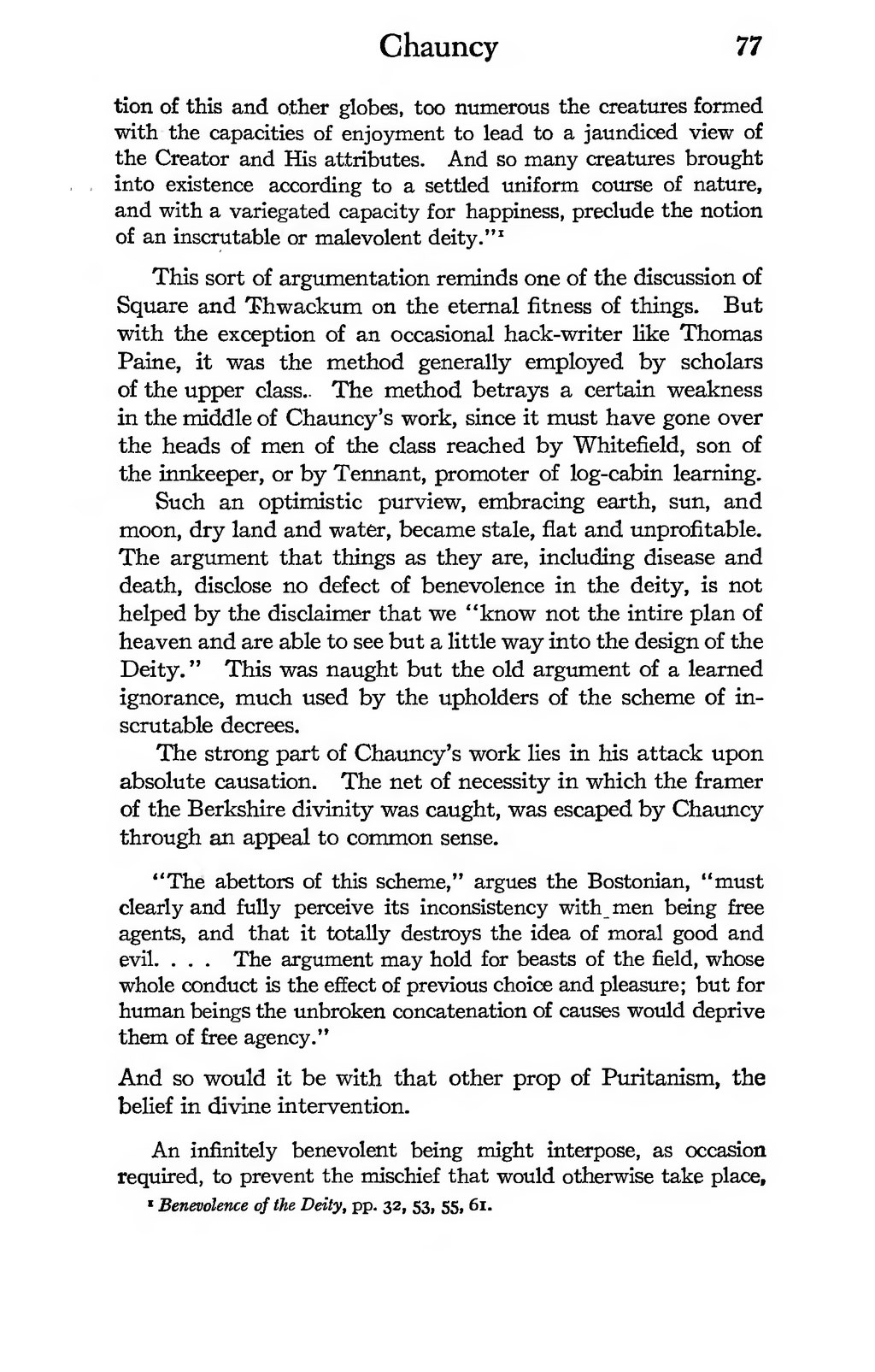tion of this and other globes, too numerous the creatures formed with the capacities of enjoyment to lead to a jaundiced view of the Creator and His attributes. And so many creatures brought into existence according to a settled uniform course of nature, and with a variegated capacity for happiness, preclude the notion of an inscrutable or malevolent deity." [1]
This sort of argumentation reminds one of the discussion of Square and Thwackum on the eternal fitness of things. But with the exception of an occasional hack-writer like Thomas Paine, it was the method generally employed by scholars of the upper class. The method betrays a certain weakness in the middle of Chauncy's work, since it must have gone over the heads of men of the class reached by Whitefield, son of the innkeeper, or by Tennant, promoter of log-cabin learning.
Such an optimistic purview, embracing earth, sun, and moon, dry land and water, became stale, flat and unprofitable. The argument that things as they are, including disease and death, disclose no defect of benevolence in the deity, is not helped by the disclaimer that we "know not the intire plan of heaven and are able to see but a little way into the design of the Deity." This was naught but the old argument of a learned ignorance, much used by the upholders of the scheme of inscrutable decrees.
The strong part of Chauncy's work lies in his attack upon absolute causation. The net of necessity in which the framer of the Berkshire divinity was caught, was escaped by Chauncy through an appeal to common sense.
"The abettors of this scheme," argues the Bostonian, "must clearly and fully perceive its inconsistency with men being free agents, and that it totally destroys the idea of moral good and evil. . . . The argument may hold for beasts of the field, whose whole conduct is the effect of previous choice and pleasure; but for human beings the unbroken concatenation of causes would deprive them of free agency."
And so would it be with that other prop of Puritanism, the belief in divine intervention.
An infinitely benevolent being might interpose, as occasion required, to prevent the mischief that would otherwise take place,
- ↑ Benevolence of the Deity, pp. 32, 53, 55, 61.
